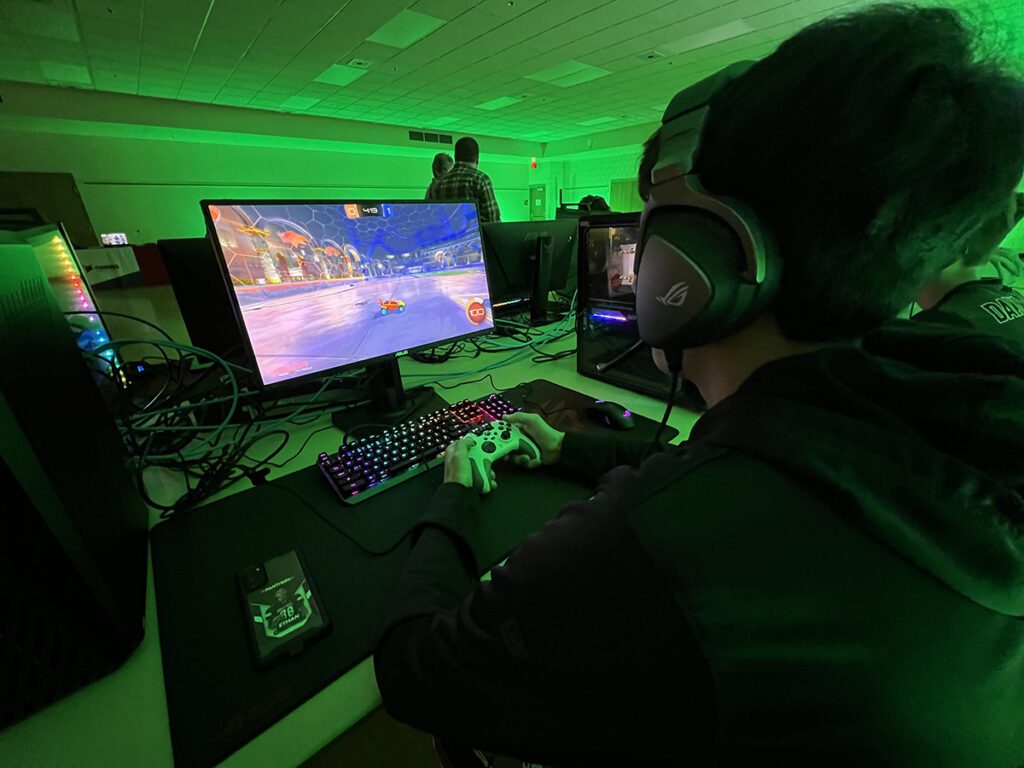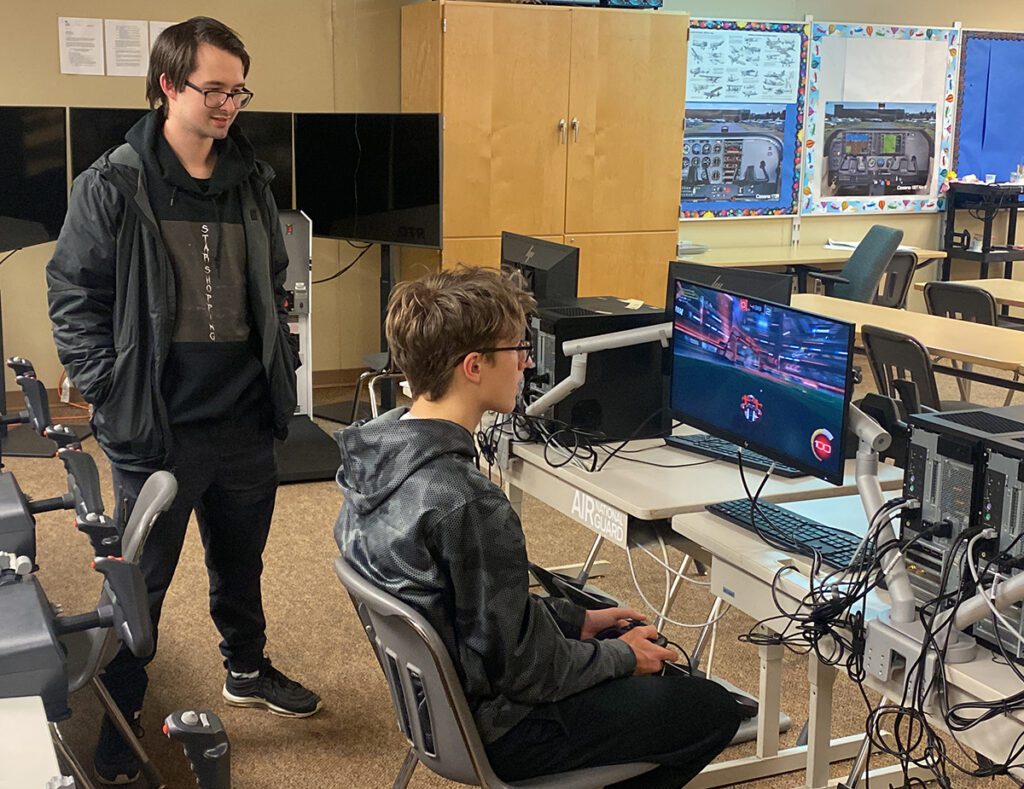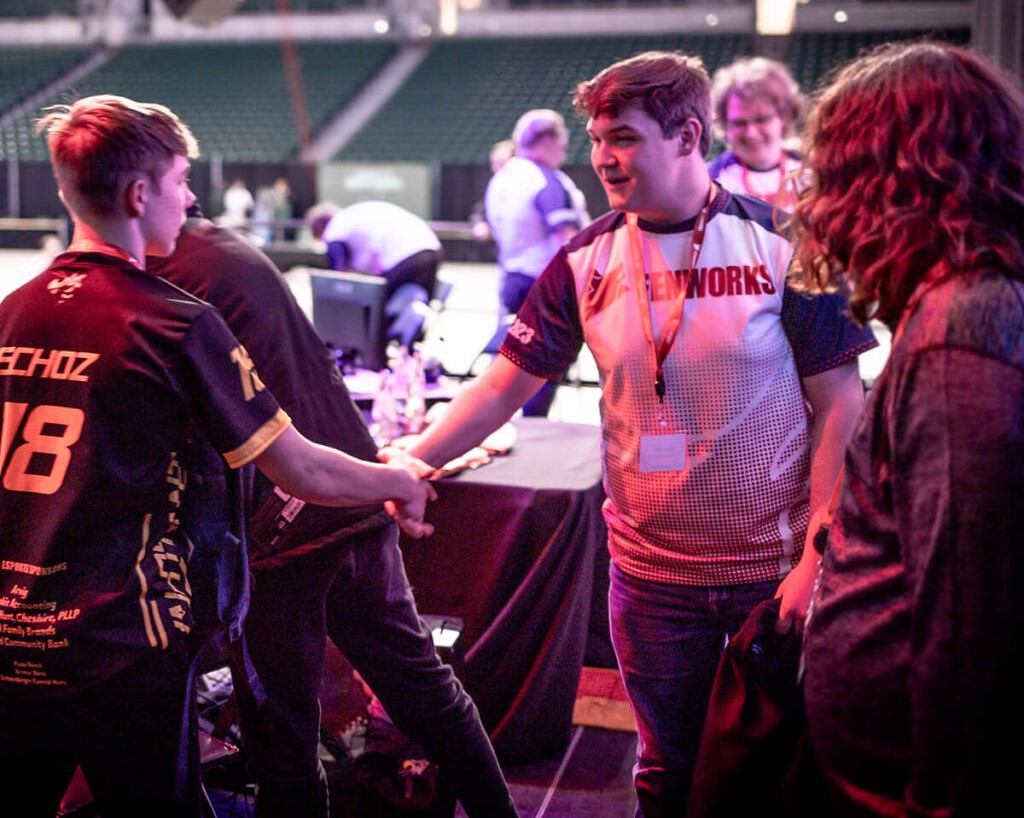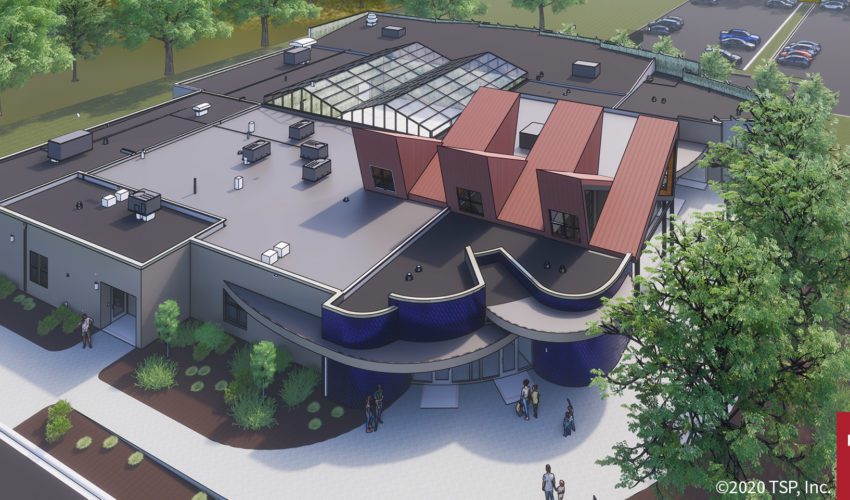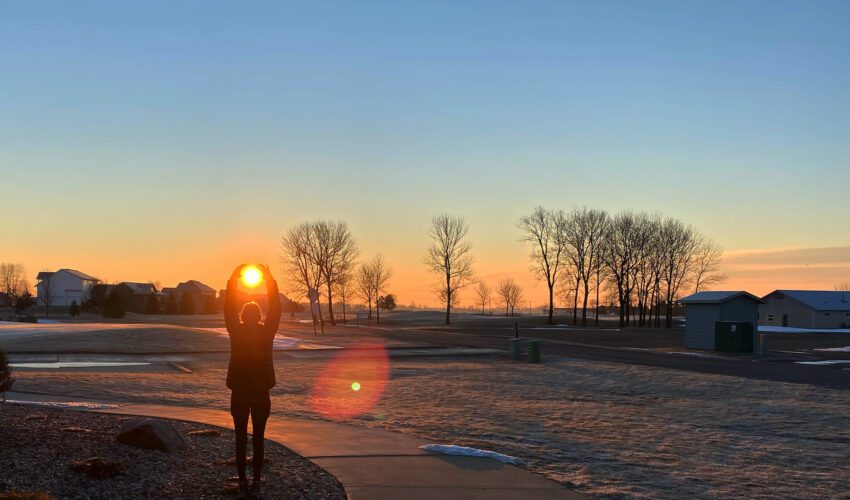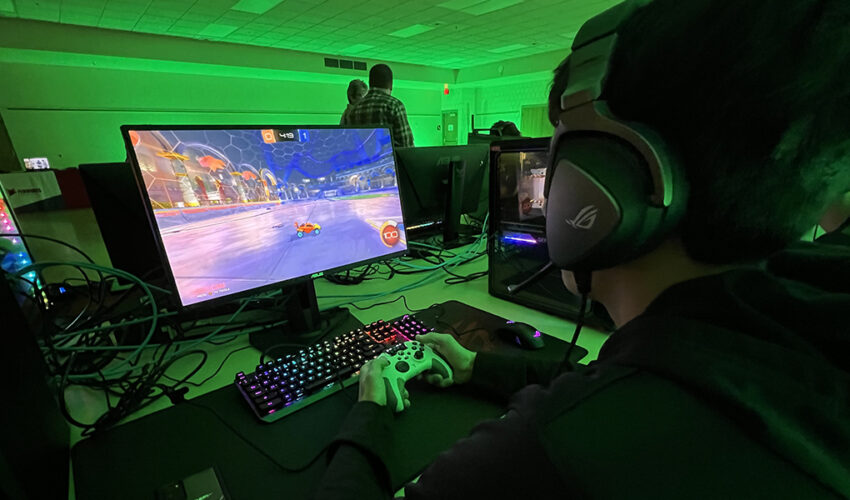Esports: What to know about South Dakota’s newest prep sport
March 7, 2024
This paid piece is sponsored by SDN Communications.
A new activity is set to join football, volleyball as well as track and field as a sanctioned high school sport in South Dakota.
Esports has been surging in popularity over the past decade — the streaming audience is expected to hit 1.4 billion in 2025, and several South Dakota colleges have established esports programs.
Twenty South Dakota high schools started esports programs for the 2023-24 pilot season in preparation for the first sanctioned season by the South Dakota High School Activities Association this coming fall.
A student plays Rocket League during an esports event at the Lakota Nation Invitational in December in Rapid City.
Approximately 170 colleges nationwide offer scholarships to esports players. Supporters say esports prepares students for tech careers and teaches sportsmanship and team-building in the same vein as other sports.
For Dan Swartos, executive director of the SDHSAA, making esports a sanctioned activity fits perfectly with the association’s mission to engage all students.
“It’s a way to get kids involved who might not otherwise be involved with their schools,” he said.
The state’s best esports teams will converge at South Dakota State University on March 22-23 for the first high school state tournament. SDN Communications, a business internet provider in South Dakota and southwestern Minnesota, is the platinum sponsor of the event.
Here are four things you need to know about the pilot season of esports in South Dakota.
Why did the SDHSAA decide to sanction esports?
The activities association began exploring the addition of esports about four years ago because of popular demand, Swartos said. Nationally, more states have sanctioned the sport. Colleges also offer esports scholarships and have their own competitive teams. It has become a multibillion-dollar business with an estimated 3.26 billion people worldwide playing video games.
The popularity of gaming continues to grow, and the SDHSAA saw an opportunity to engage more students in school activities.
Sioux Falls esports coach Coach Johnathan Halleen watches as Jacob Markley competes in a Rocket League game at CTE Academy in Sioux Falls.
“If you’ve got kids, your kids are either playing or watching others playing games,” Swartos said. “Our job is to provide opportunities for kids and meet them where they’re at.”
Swartos said esports not only gives students a chance to compete but also teaches life skills and leadership. Just like football or debate, esports offers important lessons for participating students, he said. Players must strategize and create game plans to defeat their opponents. They learn to work with other players and enjoy competing for their schools.
“They work together as a team,” Swartos said. “They share the experience and have that camaraderie. And that’s important.”
What has the first year of esports at the high school level looked like?
For the 2023-24 year, esports is being piloted in 20 schools. Next year, esports will be rolled out to all interested schools and become fully sanctioned.
“We are doing a practice year to get everything set up and work through the bugs,” Swartos said.
Schools piloting esports this year include Aberdeen, Baltic, Beresford, Canistota, Dakota Valley, Deuel, Douglas, Flandreau Public, Hot Springs, Lakota Tech, Leola, Madison, Mobridge-Pollock, Northwestern Area, Platte-Geddes, Rapid City Central, Sioux Falls, Tea Area, Warner and Woonsocket.
The Sioux Falls School District has a combined program from all the city’s public schools, but the goal is to have a team at each high school.
Teams play against each other virtually together in school computer labs in matches coordinated by North Dakota-based Fenworks. After completing the match, both coaches take a picture of the final score and send it to Fenworks for tracking and standings.
Which titles, or games, are teams piloting?
The esports pilot started with four competitive titles: Rocket League, Super Smash Bros., League of Legends and chess. Rocket League is a soccer-type game with cars rather than people playing the sport. Super Smash Bros. uses characters from Nintendo games who fight to knock each other out of the arena. In League of Legends, two teams of five players battle to destroy the opposing team’s base. Besides Super Smash Bros., all the other games are played on PCs.
There are five players on a League of Legends team and up to three on a Rocket League team. Super Smash Bros. and chess are both individual titles. Schools can have multiple teams for each title, and teams have backup players as well.
North Dakota esports players shake hands after a match at the 2023 state tournament. Photo courtesy of Fenworks.
What does a high school esports season look like?
South Dakota high schools compete in an eight-week esports season. It’s considered a winter sport, kicking off in November. Each game title has one competition a week against another school along with weekly team practices and professional coaching available. The weekly contests are virtual.
Schools collaborate with Fenworks to coordinate licensing requirements, programming and scheduling of competitions. The eight-week competitive season’s results determine which teams advance to the in-person state tournament.
This year’s state esports tournament will be held in person March 22-23 at South Dakota State University in Brookings. The event is free and open to the public. Fenworks chief sales officer Gannon Karsky said there are also additional opportunities for vendors and colleges to sponsor the season and tournament to support the players and offer in-person recruitment.

